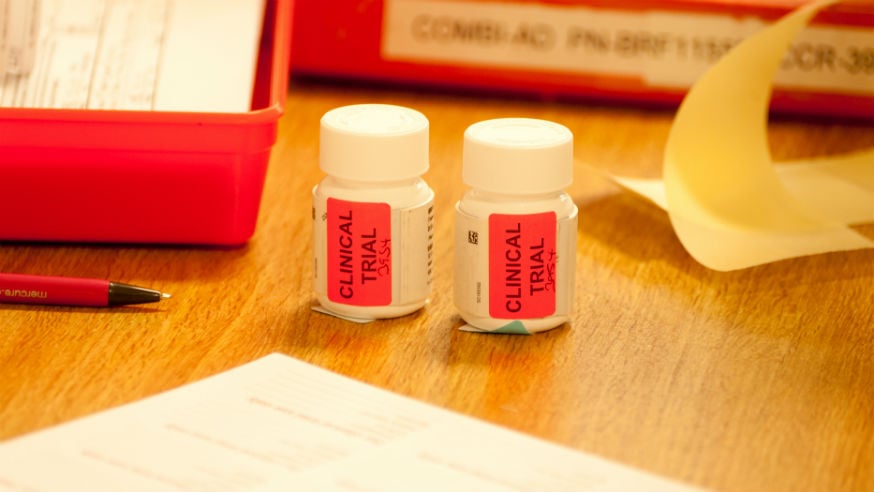Early clinical trials of some targeted cancer drugs may underestimate their toxicity, a new analysis reveals.
Researchers from The Institute of Cancer Research analysed previously published data from two different types of targeted cancer drugs – small molecules and monoclonal antibodies.
With the small molecule targeted agents, early trials used to determine the correct dose and schedule of the drugs did not accurately identify the severity of side-effects that would be seen in larger cancer patient populations over prolonged periods of time. This resulted in a high incidence of side-effects in late phase clinical trials that use a greater number of patients.
The study, published in Clinical Cancer Research, highlights that trials used to recommend the doses of small molecule targeted cancer drugs needs to be refined.
The researchers reviewed 36 targeted cancer therapies that have been approved in the US over a 12-year period. They compared toxicity data from phase III trials of the drugs with early phase I trials to see the impact of dosing recommendations when drugs are used in larger populations of patients.
They found that a significantly higher percentage of patients experienced serious side-effects with small molecules compared with monoclonal antibody agents in phase III studies. Patients receiving small molecule targeted agents required more dose modifications and reductions in phase III trials compared to those receiving monoclonal antibodies.
Researchers also investigated combinations of small molecule agents with other anticancer drugs. There was a higher incidence of severe side-effects in phase III trials of small molecule agents in combination than when used as a single agent.
Causes for the underestimated toxicity included the fact that patients on phase I studies are often not exposed to experimental drugs for long periods of time because of progression of their disease.
Researchers also found that drugs with doses and schedules determined by investigating the effect that drugs have on the body, and how the body processes the drug, had significantly lesser toxicity in phase III trials. Based on these pharmacodynamic and pharmacokinetic measurements, patients received drugs that were below the maximally tolerated dose – the highest dose of a drug or treatment that does not cause unacceptable side-effects.
This research indicates that there is room for improvement in current methodology for recommending doses and schedules of small molecule anticancer agents.
Dr Udai Banerji, Reader in Molecular Cancer Pharmacology at the ICR, who led the analysis, said: “There is a fine balance in dosing studies. If the recommended dose set in the phase I trial is too low, the drug is at risk of having lack of efficacy in future clinical trials. However, a dose that is too high risks excessive toxicity.
"Here at the ICR, we have pioneered the concept of the pharmacological audit trail. This links all of the essential parameters of drug action, from the molecular target to the clinical effect, and emphasises the importance of pharmacokinetic and pharmacodynamic data in helping to improve how we define doses and schedules of anticancer drugs. Better optimisation of doses and schedules, leading to less toxicity, will certainly be beneficial to patients and healthcare providers alike.”
